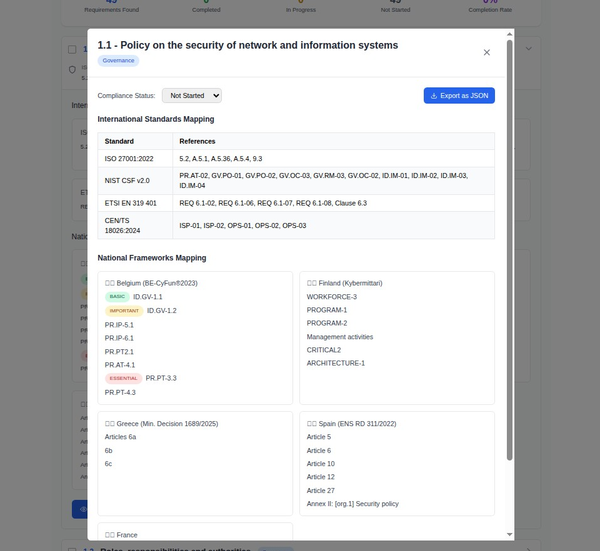Navigating Global Data Privacy Laws: A Closer Look at GDPR, PIPEDA, POPIA, APPI, PDPB, PDPA, APPs, Swiss-US Privacy Shield, and LGPD

In the digital age, data privacy has emerged as a critical issue. As a result, countries around the world have enacted their own data privacy laws to safeguard their citizens' personal information. This article delves deeper into the similarities and differences between nine major data privacy laws worldwide: GDPR (EU), PIPEDA (Canada), POPIA (South Africa), APPI (Japan), PDPB (India), PDPA (Singapore), APPs (Australia), Swiss-US Privacy Shield, and LGPD (Brazil).
GDPR: The Gold Standard
The General Data Protection Regulation (GDPR) is a comprehensive data protection law enacted by the European Union. It is often considered the gold standard for data privacy laws due to its extensive scope and stringent requirements.
A Comparative Analysis
While each of these laws has its unique characteristics, they also share common themes. Here's a more detailed comparison:
- PIPEDA (Canada): PIPEDA, like the GDPR, requires explicit consent for data collection and grants individuals the right to access their data. However, PIPEDA's scope is narrower as it applies only to private-sector organizations.
- POPIA (South Africa): POPIA aligns with GDPR in terms of data subject rights and data breach notifications. However, POPIA mandates the appointment of an Information Officer, a requirement not present in the GDPR.
- APPI (Japan): Both APPI and GDPR mandate businesses to implement measures to protect personal data. However, APPI does not provide for data portability, a key feature of the GDPR.
- PDPB (India): The proposed PDPB mirrors several GDPR features, such as data principal rights, data breach notifications, and the requirement of a data protection officer. However, PDPB introduces unique elements like the right to be forgotten.
- PDPA (Singapore): PDPA, like GDPR, mandates organizations to protect personal data. However, unlike GDPR, PDPA does not require a legal basis for data processing.
- APPs (Australia): The Australian Privacy Principles (APPs) cover many of the same areas as the GDPR, but there are differences in the enforcement of these principles.
- Swiss-US Privacy Shield: This framework, designed to facilitate data transfers between Switzerland and the US, aligns with GDPR in terms of data protection principles. However, it is not a comprehensive law like GDPR.
- LGPD (Brazil): LGPD closely resembles GDPR in terms of its principles, rights of the data subject, and the concept of a data protection officer. However, LGPD has a broader definition of personal data.
Key Takeaways
While all these data privacy laws aim to protect personal data, they vary in their scope, principles, enforcement, and penalties for non-compliance. Organizations operating globally must understand the nuances of each law and ensure compliance with each jurisdiction's requirements.
This comparison provides a general overview, and the specifics of each law should be studied in detail for comprehensive understanding and compliance. Please note that this article does not constitute legal advice. For detailed guidance on compliance with these laws, consult with a legal expert in data protection law.





